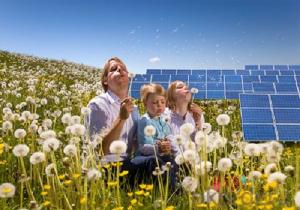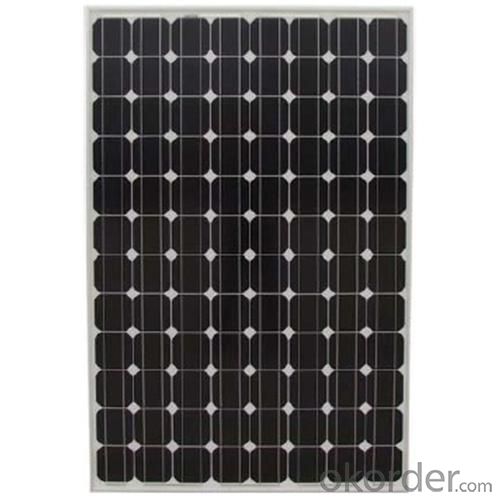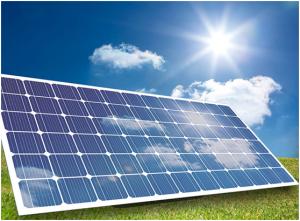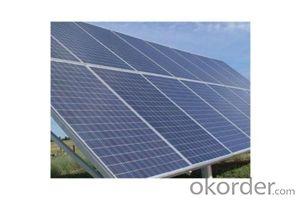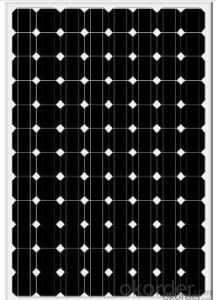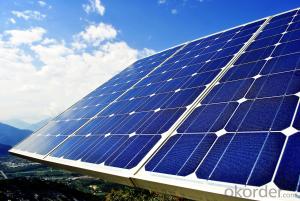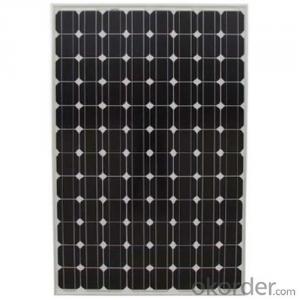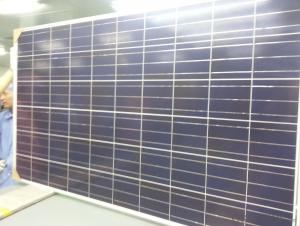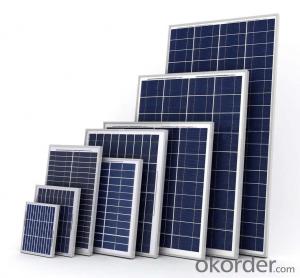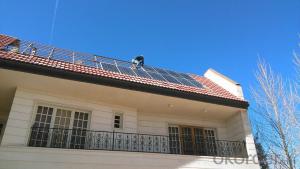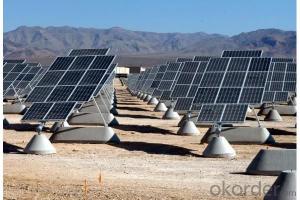Honda Solar Panels - UL and TUV Approved High Efficiency 30W Poly Solar Panel
- Loading Port:
- Shanghai
- Payment Terms:
- TT OR LC
- Min Order Qty:
- 10000 watt
- Supply Capability:
- 20000000 watt/month
OKorder Service Pledge
OKorder Financial Service
You Might Also Like
Specification
1.The Description of Product
Nowadays, with the shortage of the energy sources, people start to develop the solar energy, a new long lasting sources of energy which can be used almost anywhere. Why solar energy become so popular, we summarized the below some advantages of solar energy.
Type | CNBM Solar Polycrystalline Series |
Materials | Silicon |
Guarantee | 12 yrs free from defects in materials and workmanship No less than 90% within 10yrs and no less than 80% within 25yrs TUV(IEC61215&IEC61730), CE, UL |
Application | Photovoltaic/ solar/ green energy/ energy saving |
Descriptions | 1.High efficiency crystalline silicon solar cell. Even if under the weak light, the solar module can produce maximum power output. 2.Tempered glass (toughened glass): Anti-reflecting coating and high transmission rate glass increase the power output and mechanical strength of solar module. 3. EVA and TPT: Using high quality EVA and TPT to prevent destroying and water. 4. AI frame: Without screw, rner connection. 6 holes on the frame can be installed easily. 5. Junction box: Multi function junction box with water proof. 6. Long lifetime: ≥25 years; Less power decrease. 7. Good performance of preventing from atrocious weather such as wind and hails. 8. Resisting moisture and etching effectively, not effected by geology. 9. The certificate issued by international authority: UL, TUV, IEC, CE.
|
2.Production Line
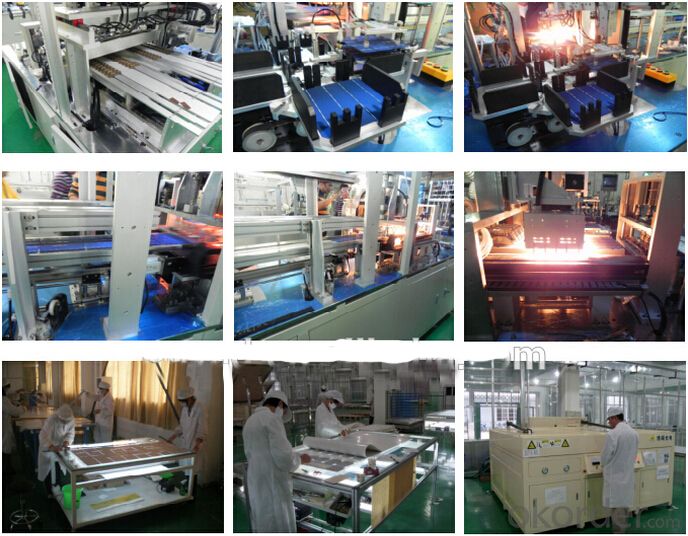
3.The Pictures of Solar Panels
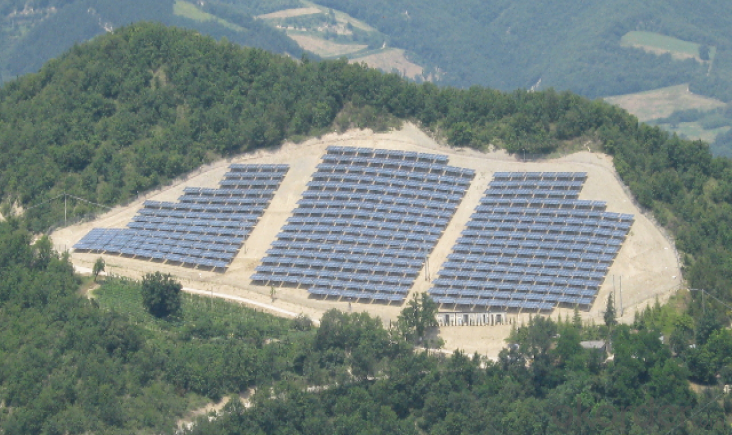
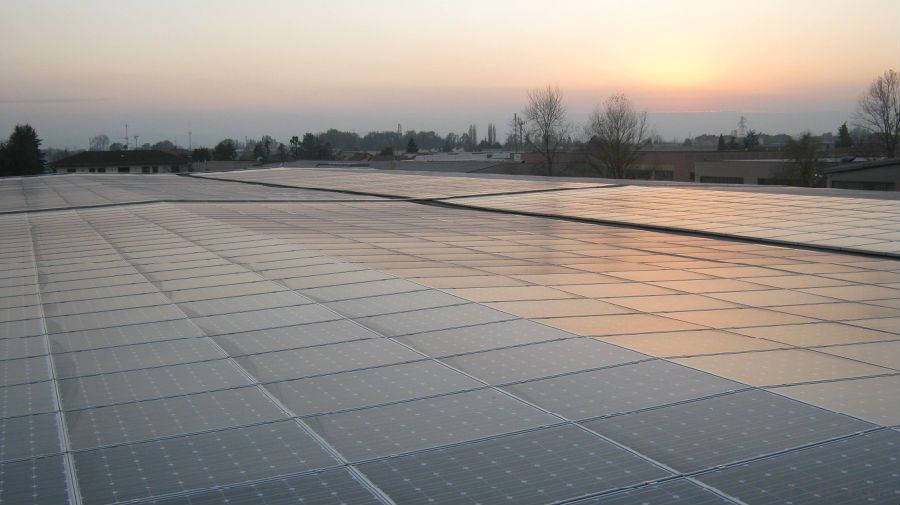
4.Packing
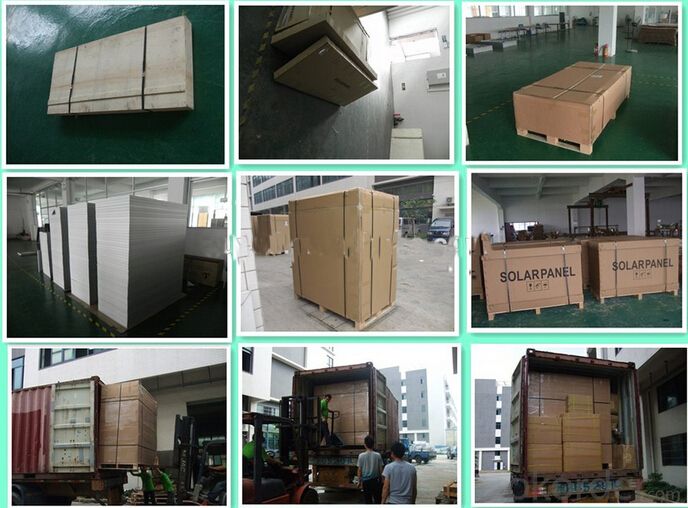
5.FAQ
1). How to buy?
Contact with the talking button.
2).Can you do OEM for us?
Yes, we can.
3). How long can we receive the product after purchase?
In the purchase of product within three working days, We will arrange the factory delivery as soon as possible. The perfect time of receiving is related to the state and position of customers. Commonly 7 to 10 working days can be served.
4). Can we visit your factory?
Sure, welcome at any time is believing.
- Q: What are the benefits of using solar panels?
- There are several benefits of using solar panels. Firstly, solar panels generate renewable and clean energy by harnessing the power of the sun, reducing our dependence on fossil fuels and reducing greenhouse gas emissions. Additionally, solar panels can help to save money on electricity bills, as they generate free electricity once installed. They also require minimal maintenance and have a long lifespan, providing a reliable source of energy for years to come. Moreover, solar panels can increase the value of a property and contribute to energy independence, especially in remote or off-grid areas. Overall, the use of solar panels promotes sustainability, cost savings, and a cleaner environment.
- Q: Can solar panels be used for powering outdoor events or festivals?
- Yes, solar panels can be used to power outdoor events or festivals. They are a sustainable and renewable energy source that can provide electricity for various needs such as lighting, sound systems, food stalls, and more. Solar panels can be set up in strategic locations to capture sunlight and convert it into usable energy, reducing the reliance on fossil fuels and minimizing the environmental impact of such events.
- Q: Can solar panels be installed on a canopy or pergola?
- Yes, solar panels can be installed on a canopy or pergola. In fact, these structures can provide an ideal location for solar panel installation, as they offer ample space and optimal sunlight exposure. By integrating solar panels into canopies or pergolas, you can generate clean and renewable energy while simultaneously providing shade or protection from the elements.
- Q: Are solar panels weatherproof?
- Yes, solar panels are designed to be weatherproof and can withstand various weather conditions such as rain, snow, hail, and wind. They are made with durable materials and have protective coatings to ensure long-term performance even in harsh climates.
- Q: Are there any fire hazards associated with solar panels?
- Yes, while solar panels themselves do not pose a significant fire hazard, there are some potential fire risks associated with their installation and operation. These risks primarily stem from electrical malfunctions, such as faulty wiring, improper installation, or damage to the electrical components. Additionally, in rare cases, solar panels can contribute to the spread of fire by acting as a source of fuel or by hindering firefighting efforts due to their presence on rooftops. However, with proper installation, regular maintenance, and adherence to safety guidelines, the fire hazards associated with solar panels can be minimized.
- Q: Can solar panels be installed in a shaded area?
- Solar panels can still be installed in a shaded area, but their efficiency and electricity production will be significantly reduced.
- Q: Is there a material that is capable of absorbing enough UV radiation to make it worth using as a flexible solar cell?Not flexible as in aluminum, but a material such as plastic (polycarbonate).
- They are working on printable flexible panels. So why stop with the roof? Many of the surfaces could be covered to take advantage of the sunlight no matter where it hits the jeep. However the actual power acquired would not make much of a difference while driving. It would allow the Jeep to charge back up while your out backpacking.
- Q: how does solar panels work?
- Solar panels collect solar radiation from the sun and actively convert that energy to electricity. Solar panels are comprised of several individual solar cells. These solar cells function similarly to large semiconductors and utilize a large-area p-n junction diode. When the solar cells are exposed to sunlight, the p-n junction diodes convert the energy from sunlight into usable electrical energy. The energy generated from photons striking the surface of the solar panel allows electrons to be knocked out of their orbits and released, and electric fields in the solar cells pull these free electrons in a directional current, from which metal contacts in the solar cell can generate electricity. The more solar cells in a solar panel and the higher the quality of the solar cells, the more total electrical output the solar panel can produce. The conversion of sunlight to usable electrical energy has been dubbed the Photovoltaic Effect. The photovoltaic effect arises from the properties of the p-n junction diode, as such there are no moving parts in a solar panel.
- Q: how to use a motor with solar panel
- photograph voltaic capability is somewhat fluctuating capability source and so it may be greater advantageous if u could save the photograph voltaic capability in a battery. The battery is then related to the motor. returned connect the motor with a zener diode to the photograph voltaic panel because of the fact if u dont u could have a case of decrease back emf producing from the motor and getting discharged interior the photograph voltaic panel that could injury it. further the battery additionally ought to be having a diode circuit which might avert it style discharging into the photograph voltaic panel. hoping that this facilitates..
- Q: I am intrested in buying solar panels to save a buck and even maek some money off of it but I was wondering what kind? How Much? How Many? Are they easy to install? Whats the best brand? I want alot of information on this if anyone can give me some help on it in a user friendly way it would be appreciated!
- You're unlikely to 'save a buck' much less 'make any money off of it' at the present state of the art. The panels and equipment will cost more than you'll save in the next ten years. That might change with energy prices, but not enough any time soon.
Send your message to us
Honda Solar Panels - UL and TUV Approved High Efficiency 30W Poly Solar Panel
- Loading Port:
- Shanghai
- Payment Terms:
- TT OR LC
- Min Order Qty:
- 10000 watt
- Supply Capability:
- 20000000 watt/month
OKorder Service Pledge
OKorder Financial Service
Similar products
Hot products
Hot Searches
Related keywords
